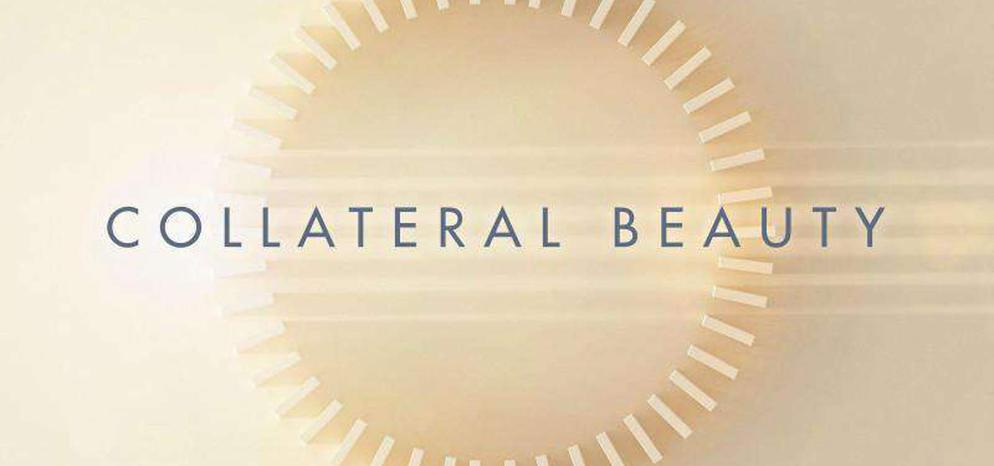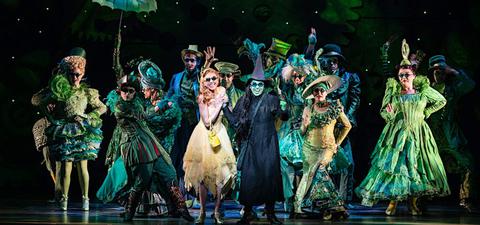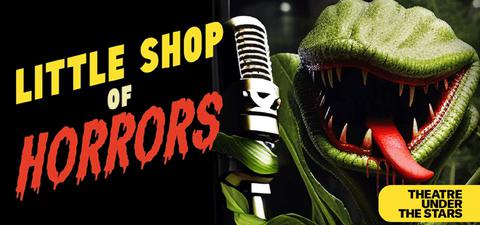Collateral Beauty (2016)

The term collateral damage is commonplace. We are familiar with the horrors that it alludes to. The concept of Collateral Beauty made me want a taste of what those words could deliver. The heart of this movie comes from a place of detached appreciation. It attempts to deliver a clinical exploration of pain and loss, but stumbles. As such, the title comes from that same place… it appeals to where the head meets the heart and tries to heal something terrible.
These themes get communicated by the opening of the film. The credits start with a sterile white space divided by shadow, hinting at the face of a clock. The key actors in this story are intelligent and charismatic advertising gurus. Their vision of what’s important to all people is clean and simple: time, love, and death. Every idea in this movie gets unpacked through those core needs.
After getting a glimpse of the main characters at their best, we jump immediately to their time of crisis. Howard, played by Will Smith, has been suffering from crippling depression since the death of his daughter. He’s drowning from it, and he’s pulling everyone down with him. Completely paralyzed by grief, he wont work with or for his friends and partners. As a result, their firm is collapsing and cannot be saved without his consent.
From there, we work through Howard’s pain, using it as a lens for the present day pain and suffering of his friends. It’s a meticulous and abstract way to approach life crushing grief and emotional paralysis. It works, though, and it works well. The verbal articulation of loss, and to respond in kind with the voice of time, love, and death. I found myself very surprised at how warm and human the pain felt despite the abstract and methodical approach to the subject matter.
Everything here is about breaking this tremendous amount of hurting apart, but without diving into it. Break it down first by how it affects you, what you want that you’ve lost. Then it approaches why you can’t move forward. And it’s all about trying to see the secondary effects radiate out from the central point of loss.
This is how Collateral Beauty struggles to internalize that pain without being trite, and primarily succeeds. It touches on something real and painful with cathartic results. The tears aren’t just from sadness, but from absorbing and learning to live with pain. That’s a great achievement for a film in which you never get to meet the character who was lost. Howard’s daughter is felt entirely through her absence in the film.
The acting is top notch. Will Smith has been faltering lately, but this is a real return to form. Every action he takes forcefully conveys the pain that Howard is experiencing. While he is the standout here, Edward Norton, Kate Winslet, and Michael Peña all knock it out of the park.
David Frankel’s directing reflected the nuanced approach to Collateral Beauty’s ideas about mourning. Right from the opening credits, the film’s messages were immediately conveyed through the camera lens.
The pitfalls in Collateral beauty come from trying too hard to be surprising. It works well for the first half, but when it comes time to wrap everything up we go through a whole new set of twists and turns that don’t work as well. This results in a muddy closing act, which wouldn’t be noticeable if the rest of the film weren’t so focused.
The movie is so good at its best that these issues aren’t enough to undermine the emotional punches. But they do soften the blows and hold the movie back from something greater.
Despite the few issues with the final act, Collateral Beauty is easy to recommend. It’s an excellent approach to dealing with pain, and the feels are definitely real. The externalization of those internal feelings of loss is something that is rarely done this well and it hits where it hurts.
| Final Verdict: | Though devastating and sometimes too clever. Collateral Beauty is cathartic and worth watching. |
| Rating: | A- |






